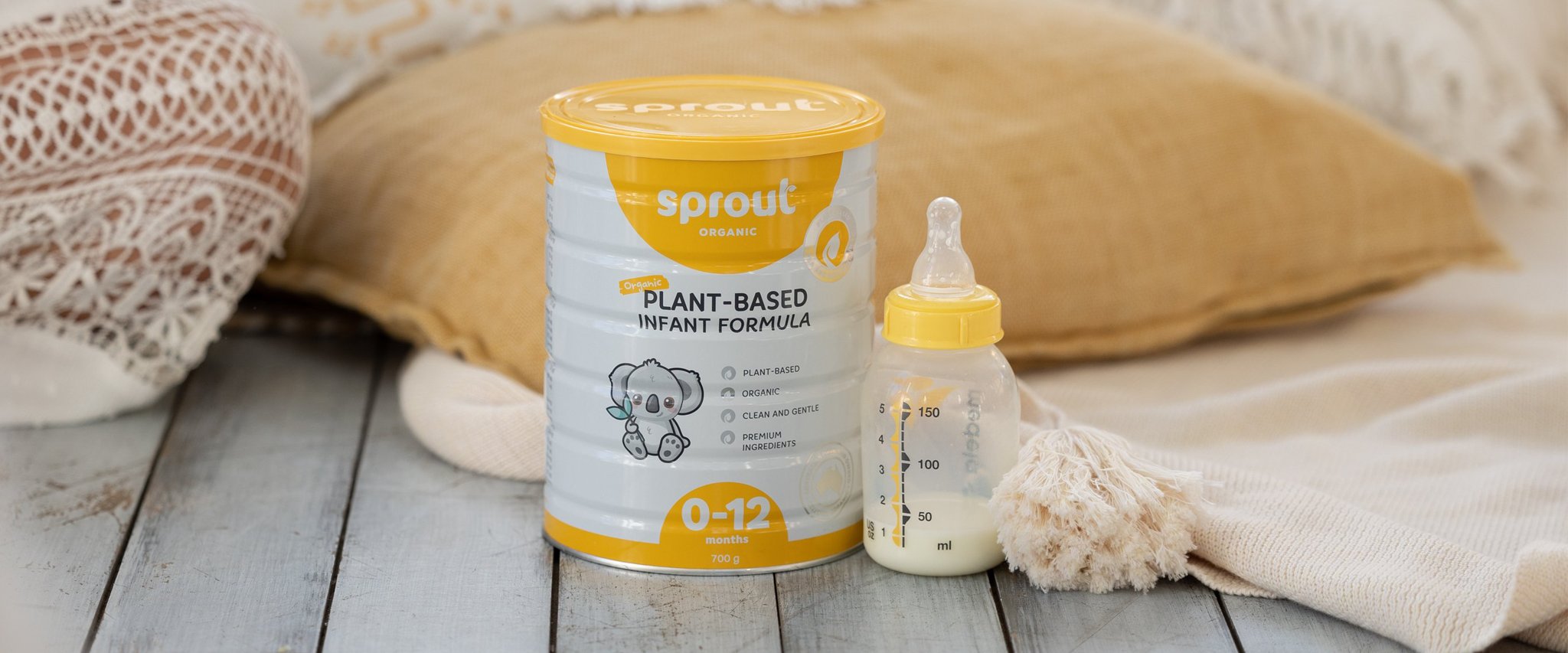Common Misconceptions about Formula Feeding
Formula feeding is a common method of providing nourishment for infants, yet it is often met with a lot of misconceptions and misunderstandings. This can lead to feelings of guilt and shame for parents who choose to formula feed, despite the fact that it is a safe and healthy option for their baby. In this article, we will explore some of the misconceptions surrounding formula feeding and help dispel these myths so that you can make an informed decision on how you choose to feed your little one.
Misconception 1: Formula is not as nutritious as breast milk
One of the most common misconceptions about formula feeding is that it is not as nutritious as breastfeeding. While here at Sprout Organic, we believe that breast milk is always best, we also understand that breastfeeding is not always possible or the informed personal choice of all mothers. In these cases, formula feeding is the safe alternative. Infant formula is carefully formulated to provide all the essential nutrients that a baby needs to grow and thrive. All formulas need to have specific amounts of protein, carbohydrates, vitamins and minerals to promote baby's healthy growth, and these amounts are tightly regulated by Food Standards Australia New Zealand (FSANZ) which sets strict standards for infant nutrition and safety.
Misconception 2: Formula-fed babies have more health issues
Another misconception is that formula-fed babies are more likely to become ill or have health problems. While it is true that breast milk transfers antibodies from mum to baby, and these antibodies may help to protect the baby from immediate threats like respiratory and gastrointestinal infections, studies have shown that formula-fed babies have similar rates of infection and illness as breastfed babies. The PROBIT study, which included over 17,000 infants, shows there is no long-term evidence that breastfeeding reduces the incidence of allergies, asthma, or respiratory tract infections.
Misconception 3: Formula feeding will reduce your bond with your baby
Another misconception is that formula feeding will negatively affect the bond between mother and child. This couldn't be further from the truth. The bond between a parent and child is not determined by the method of feeding, but rather by the love and care provided by the parent. Bonding with baby comes down to two important factors: skin-to-skin contact and facial recognition, not just baby’s connection to your breast. Formula feeding can also allow for greater participation in feedings by both parents, which can strengthen the bond between the whole family.
Misconception 4: Formula feeding is “unnatural”
Lastly, some people believe that formula feeding is unnatural and that it is the only way to feed your baby is by breastfeeding. This is not the case. Formula is a safe and healthy alternative to breastfeeding, and has been used for centuries to provide nourishment for infants. Additionally, many women are unable to breastfeed due to personal reasons, and formula provides a crucial lifeline for them to nourish their babies. Here at Sprout Organic, we’ve made it our mission to provide the most natural, wholesome nutrition for kids. Our formulas are made with the goodness of organic plants which are a natural source of nutrition for your little ones.
In summary, formula feeding is a safe and healthy option for infants. Parents should feel confident in their decision to feed their baby, whether it be breastmilk or formula, and know that they are providing them with all the essential nutrients they need to grow and thrive!
*At Sprout Organic, we believe that breast milk is always best, however we also understand that breastfeeding is not always possible or the informed personal choice of all mothers, and in these circumstances formula is the only safe alternative.
Breast milk is unequivocally the best source of nutrition for infants due to its unique benefits.
However, when an infant cannot receive breast milk the only suitable and safe alternative is a scientifically-developed infant formula product which satisfies the nutritional requirements of infants up to 6 months of age as a sole source of nutrition.






Leave a comment